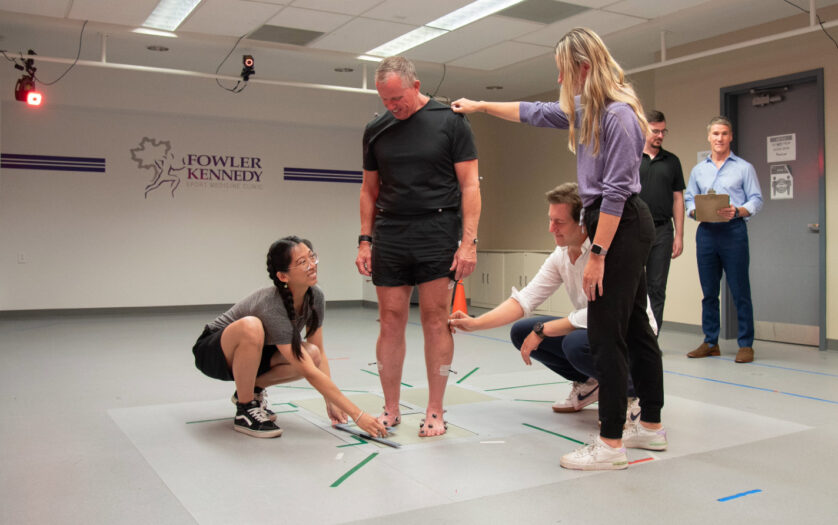
A clinical trial led by London Health Sciences Centre Research Institute (LHSCRI) and Western has found a knee surgery called high tibial osteotomy (HTO) can slow the progression of osteoarthritis. The study, published in Annals of Internal Medicine, showed that HTO reduced knee joint damage and improved pain and function among patients with knee osteoarthritis and bowed legs.
Osteoarthritis is the most common form of arthritis, affecting more than 500 million people worldwide. The knee is the most commonly affected joint, causing substantial pain and disability. Although exercise, weight management and pain medications can help, no treatments have been shown to alter the progression of the disease and lead to long-term benefits for the patient until now.
“Our study shows that changing how the knee bears load during walking can improve the natural course of osteoarthritis – a first for the field,” said professor Trevor Birmingham, Canada Research Chair in Musculoskeletal Rehabilitation in Western’s Faculty of Health Sciences and co-director of the Wolf Orthopaedic Biomechanics Lab and the Fowler Kennedy Sport Medicine Clinic.
Having bowed legs is a strong risk factor for knee osteoarthritis progression. By straightening the limb, HTO can limit that progression.
During an HTO procedure, surgeons straighten the shinbone to take pressure away from the most damaged part of the knee. The study compared outcomes over two years in patients who underwent the surgical procedure in addition to non-surgical management, versus those who only received non-surgical management. The study used advanced measures of gait analysis (which assesses how someone loads their knees during walking), magnetic resonance imaging (MRI) and patient-reported outcomes. Together, those elements demonstrated that HTO changed the way people walk, lessened further joint damage, reduced pain and improved quality of life.
For patients who received HTO surgery, MRI showed an average loss of two per cent of articular cartilage, the tissue that lines the ends of bones to absorb impact and allow smooth movement, compared to a nine per cent loss in patients who did not receive the surgery.
“Our research has shown HTO has the potential to be disease modifying, meaning it can change the way the disease progresses,” said Dr. J Robert Giffin, orthopaedic surgeon at London Health Sciences Centre, associate scientist at LHSCRI, professor at Western’s Schulich School of Medicine & Dentistry and co-director of the Wolf Orthopaedic Biomechanics Lab at Western and the Fowler Kennedy Sport Medicine Clinic.
“We are hopeful that additional centres will follow our lead in training surgeons and adopting this procedure, based on the benefits highlighted by our research.”
The study was supported in part by the Canadian Institutes of Health Research, Canada Research Chairs Program, Arthritis Society Canada and the Bernard and Norton Wolf Family Foundation.








